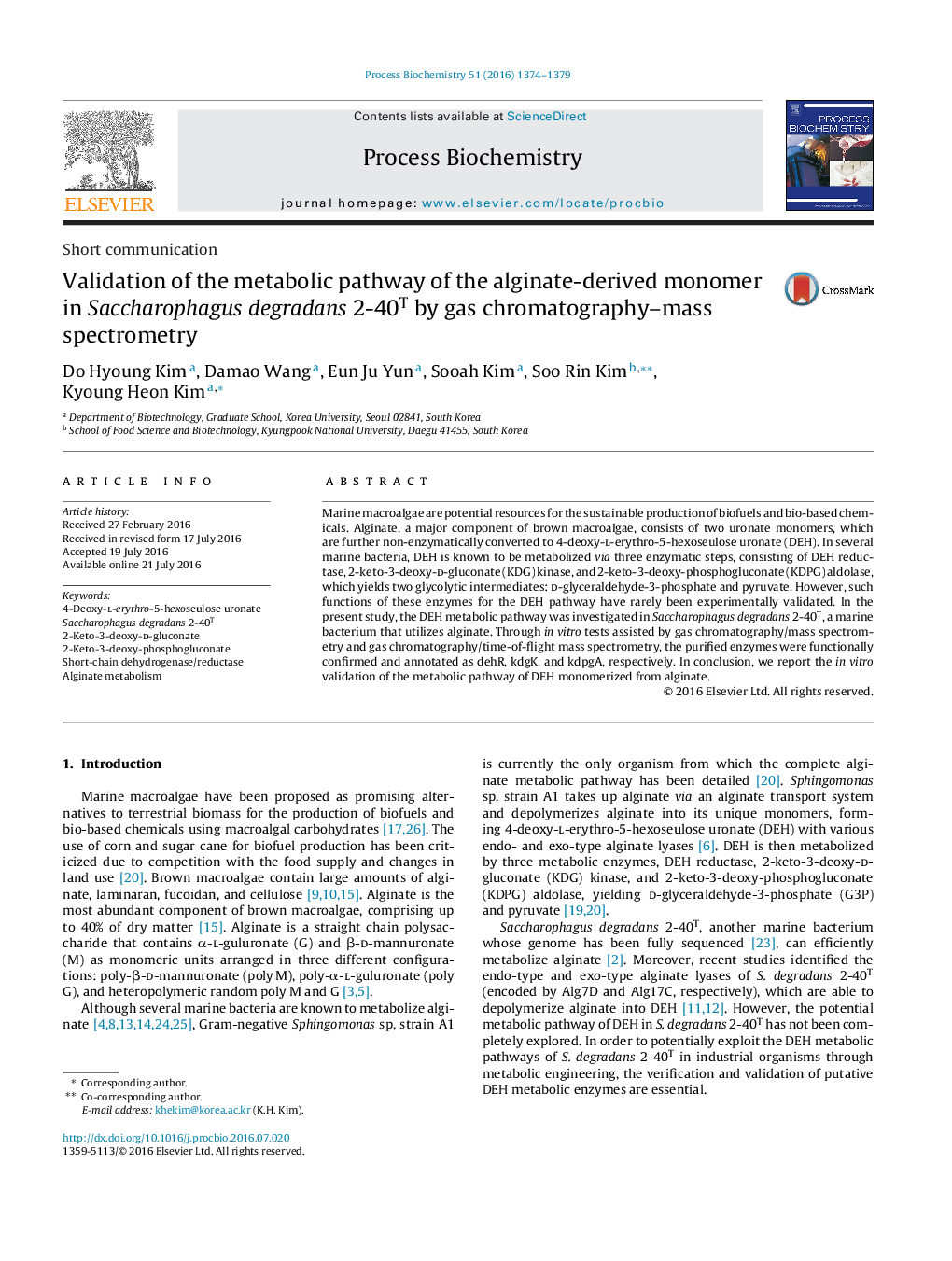| Article ID | Journal | Published Year | Pages | File Type |
|---|---|---|---|---|
| 6452988 | Process Biochemistry | 2016 | 6 Pages |
â¢Alginate is the main polysaccharide of brown macrolagae.â¢4-Deoxy-l-erythro-5-hexoseulose uronate (DEH) is the monomer of alginate.â¢DEH is a potential resource for producing biofuels and bio-based products.â¢Putative enzymes of the DEH metabolic pathways were functionally validated in vitro.
Marine macroalgae are potential resources for the sustainable production of biofuels and bio-based chemicals. Alginate, a major component of brown macroalgae, consists of two uronate monomers, which are further non-enzymatically converted to 4-deoxy-l-erythro-5-hexoseulose uronate (DEH). In several marine bacteria, DEH is known to be metabolized via three enzymatic steps, consisting of DEH reductase, 2-keto-3-deoxy-d-gluconate (KDG) kinase, and 2-keto-3-deoxy-phosphogluconate (KDPG) aldolase, which yields two glycolytic intermediates: d-glyceraldehyde-3-phosphate and pyruvate. However, such functions of these enzymes for the DEH pathway have rarely been experimentally validated. In the present study, the DEH metabolic pathway was investigated in Saccharophagus degradans 2-40T, a marine bacterium that utilizes alginate. Through in vitro tests assisted by gas chromatography/mass spectrometry and gas chromatography/time-of-flight mass spectrometry, the purified enzymes were functionally confirmed and annotated as dehR, kdgK, and kdpgA, respectively. In conclusion, we report the in vitro validation of the metabolic pathway of DEH monomerized from alginate.
Graphical abstractDownload high-res image (111KB)Download full-size image
